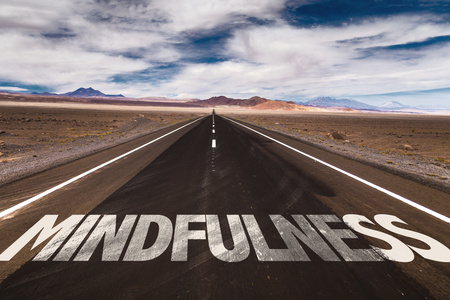We ask the Government Inquiry into Mental Health and Addiction to recommend that mindfulness is included as a central strategy of the Government’s approach to mental wellbeing for a flourishing Aotearoa NZ.
Please sign now to support this recommendation.
Why is this important?
Mindfulness is defined as “paying attention in a particular way; on purpose, in the present moment, and non-judgmentally”. – Jon Kabat Zinn (Professor of Medicine Emeritus Stress Reduction Clinic and the Centre for Mindfulness in Medicine). Evidence both here and overseas shows that, when practiced over time, mindfulness:
- Decreases symptoms of anxiety and depression (1)
- Increases mental wellbeing (2)
- Leads to measurable changes in brain structure (3)
- Improves concentration (4)
- Improves emotion regulation and empathy skills (5)
- Helps with the development of positive relationships (6).
Based on this evidence, we recommend that mindfulness is included as a central strategy within the diverse sectors of society that impact on our mental wellbeing.
MINDFULNESS IS EFFECTIVE
The biggest threats to the health of New Zealanders may no longer be injuries or infections (7). Many of today’s stressors target instead our mental health, like the increasing bombardment of information from digital technology that can leave people feeling overwhelmed and disconnected (8).
Mindfulness is an effective antidote to this stress. The benefits of regular mindfulness practice provide people with the core strengths and competencies they need to thrive in a modern world.
The people behind this submission feel passionately about mindfulness not only because of the robust science behind it but because of our own lived experiences. It has transformed each of our lives in different ways, for example in recovery from post-natal depression and in overcoming negative childhood experiences, and we’ve seen it touch so many others in amazing ways. While it's not a panacea - it needs to be implemented alongside other approaches - we believe it is a crucial part of a raft of changes that would benefit the mental wellbeing of all New Zealanders, and can be implemented across many sectors of society that impact this (9).
For example, there is evidence for effective mindfulness-based interventions in prevention, promotion and/or treatment in the following sectors:
- Education: Mindfulness boosts cognitive performance, improves mental health and wellbeing and builds resilience (10, 11).
- Workplaces: Mindfulness reduces burnout, increases wellbeing, resilience, ability to handle stress, improved relationships, enhances collaboration, and improves leadership, decision-making and creativity (12).
- Healthcare: Mindfulness reduces burnout, enhances empathy, and improves the therapeutic relationship in healthcare professionals (13).
- Mental Health: Mindfulness based interventions are effective with a range of conditions, including depression, anxiety, pain, smoking cessation (14), and substance and behavioural addictions (15).
- Criminal Justice: Mindfulness reduces violence in prisons, reoffending rates, as well as negative emotionality, drug use and associated attitudes in prisoners (preliminary research) (16).
- Early childhood and parenting: Reflecting research showing the first 1000 days of life is crucial in growing healthy adults (17), mindful parenting programmes are suggested as a preventative approach that can enhance parent-child relationships (18), and preliminary evidence suggests that parental mindfulness reduces stress in children (19).
This Government is pioneering in its approach to wellbeing, as shown by initiatives like the Living Standards Framework being adopted by Treasury, and the 2019 Wellbeing Budget. As part of this, there is an opportunity for New Zealand to capitalise on recent advances in mindfulness research to benefit New Zealanders’ mental wellbeing in the digital age, and lead the world in this regard.
Together we can make Aotearoa a world leader in mental wellbeing.
Help to make MINDFULNESS A CENTRAL STRATEGY of the Government’s approach to mental wellbeing for a flourishing Aotearoa NZ: Sign the Open Submission.
Members of Mandate for Mindfulness Working Group:
Brigid O’Brien, MBChB, MPH, FNZCPHM, Public Health Physician
Natasha Rix, BSocSc, Director Strategy and Operations, Mindfulness Education Group
Nick Laurence, BA (Hons), Doctorate of Clinical Psychology Candidate
Caroline Taylor, LLB, BCA, Public Policy and Management Consultant
Reference list can be found here: goo.gl/fj65Yi

